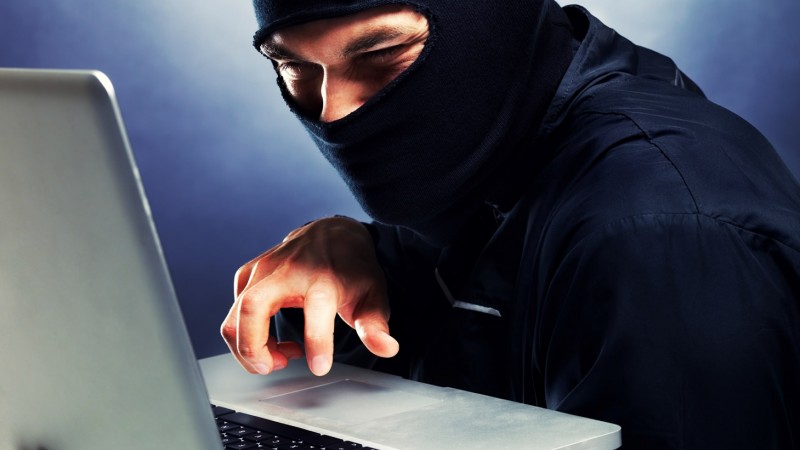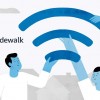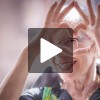Scammers & Checking Accounts
- Details
- Written by Renier
- Category: Modules

Fake check scams are targeting your wallet. Learn the warning signs and avoid the traps.
Getting burned by counterfeit checks is something that happens to your local merchants or to other consumers, but not to you or your friends and neighbors, right?
Wrong!
Some new variants of a very old scam are victimizing many innocent people. Typically, the con artist strikes when these folks are just trying to sell an item on the Internet; others may be trying to start a new business venture, find employment, make a date or locate a roommate to share an apartment.
A Scam Example
Here's an example we've used in one of the FoolProof modules. Remember this?
-
For sale: Reliable dirt bike.
A person selling a used dirt bike posted a notice on the website of his bike club. That seemed a safer place to do business than a large auction site. He soon had several responses. One person offered to buy the bike very quickly. The two chatted via email.The prospective buyer was friendly and eager to buy. However, to expedite the sale, the prospective buyer wanted to have a third person (who owed him money) send a certified check for more money than the cost of the bike directly to the bike seller. Because the check was for more than the price of the bike, the prospective buyer asked the seller to deposit the check in his account and then wire the buyer the excess money. The buyer would then pick up the bike later.
The problem?
The "certified" check was really a high-class, hard-to-detect counterfeit. Before the seller learned the check was a fake, he'd already sent the "buyer" the excess overpayment: $6,000.
How This Scam Works
It's a version of an old scam known as the Nigerian scam or advance fee scam. The scam works well for three reasons:
-
The scam appears to send you "real" money, usually a cashier's check or certified check drawn on a U.S. bank (sometimes even a postal money order), before asking you to wire or express part or all of that money to the scammer or some third party.
The scam relies on our belief that real cashier's and certified checks and postal money orders are more trustworthy than personal checks. However, the counterfeit checks or money orders that the scammers send are very good and tough to identify as fake.
-
The scam is initiated in response to a legitimate activity that you are pursuing. For instance, on a website or in a classified ad, you are selling an item such as car, bike, boat or jewelry, offering a service such as renting an apartment, seeking employment or signing up for a chat room, dating service or other recreational activity.
In the original versions of the Nigerian scam, the "offer" arrives unsolicited in a letter, an email, or a fax. Some of the newer versions, particularly the "you've-won-a-sweepstakes" ploy, still arrive unsolicited.
-
Once the scammer is in touch with you, they often chat via email or phone, talking about the item or service you have for sale. They appear friendly, sincere, and aboveboard. Also, they don't want you to send any money in advance, only after you have their "money" deposited in your account. They work hard to win your trust, but appearing trustworthy is the con artist's primary tool in getting you to act.
Recognizing the Scam: Learn the Red Flags
Your first and most important line of defense is to know how the scam works and to be able to identify the following red flags.
-
You are asked to pay money out of your checking account.
This is a five-star red flag. If you are asked to do this, run, don't walk, away from the "deal." The basic pattern of all the fake check scams is that the con artists will send you a cashier's or certified check (or postal money order) to deposit in your account. Then they will give you a reason to quickly wire or express part or all of the money out of your account to them or some third party they identify. Often the wired money is to go to a foreign country.Here are a few of the different forms this scam takes:
-
You are selling an item on the Internet or via a newspaper ad. The "buyer" wants to send you a cashier's check or certified check that "overpays" the price you are asking, often by thousands of dollars. You are to wire that "overpayment" in cash to them.
-
You advertise for a roommate, and one of the strangers who responds to your ad wants you to cash a check. Hey, does that person think you are crazy.
-
You have won a college sweepstakes or lottery (often said to be from a foreign country such as Canada). The check in the mail proves it, but you will need to wire cash to the specified address to cover the "taxes" or "customs" or other fees before claiming your prize the amount you want. You are to wire or express them the overpayment.
-
-
You are asked to act very quickly.
The scammers don't want you to have time to carefully verify whether the cashier's check or certified check is authentic or counterfeit or to wait for the check to clear.The scammers typically ask you to wire cash as quickly as possible using an outside wire service such as Western Union. They know that their fakes are very professional and usually will pass an initial visual inspection at the financial institution taking the deposit. Some counterfeits, particularly those that involve identity theft of a real person, are so good that it may take weeks to identify the check as counterfeit. At that point, you are left holding the bag: the scam artists have your money and, under law, you are responsible for the missing money and may even be suspected of fraud.
-
Fake check scammers often claim to be in another country.
That makes it difficult, they say, for them to send you a check directly and so they will have someone send a check on a U.S. bank. Often you are asked to wire the funds out of the country. -
The deal is too good to be true.
This old, smart consumer advice holds true in these cases. If a stranger is eager, sight unseen, to pay full price or more for the big-ticket goods you are selling and they'll express a cashier's check that afternoon, smell a rat. If after a few emails or phone conversations or even meetings, a stranger wants you to go into business, slow down.
The scammers typically ask you to wire cash as quickly as possible using an outside wire service such as Western Union.
How to Protect Yourself
You can take several simple steps to protect yourself from fake check scams. Knowing what to do can help you sell your goods more safely online. Never accept a check for an amount greater than your selling price or fee. If the "buyer" sends a check in excess of your selling price, send it back and don't send the merchandise.
-
If you accept a cashier's check even for the exact amount, ask that it be drawn on a local bank or bank with a local branch and always "check out" the check.
The name and address of the bank issuing the check will be on the check. If the bank is local, visit them and ask them to verify the check. If the bank is not local, locate the phone number independently (don't use the number on the check) and call them to verify the check. -
Wait for a cashier's or certified check to clear before using the money.
Although your financial institution may quickly make funds available that you've deposited, that does not mean that the check is good or has cleared through the original issuing institution. That can take many days. Sometimes it can take weeks to discover a very good forgery, and the check won't bounce until then. Therefore, verify the check with the issuing bank and then wait for final clearance. -
Know who you are dealing with.
The law generally assumes that you, not your financial institution, have the best knowledge of the person who gave you the check because you are dealing directly with them. Therefore, if you are dealing with a stranger, make sure you have their name address and phone number, then verify those independently using online directories. If the number or address in the directory is different, call the person using those numbers—you may have stumbled into an ID Theft situation and can help another consumer.
What's the five second summary of this article? Think before you deal with strangers and your checking account!
Cheers, Will
Cashier's Check
A check written by a financial institution (not by you) that is normally treated as cash. Here's what happens: you give money to the bank, the bank issues their own check for the same amount.
Cashiers checks are mainly used when some person or company wants money without waiting for a check to clear.
But watch out! Some scam artists are using fake cashiers checks. Normally, here's the giveaway it's a scam: a stranger wants you to give change back from their cashiers check.
Let's say you're selling something on a website. The price is $200. But a stranger wants to send you a $1000 cashiers check and then have you give them back the overpayment. Forget it! The check is usually forged.
Watch for this scam. It's happening to thousands of young people every year.
Certified Check
A check that you write that is generally guaranteed by the bank to be good. The bank "certifies" that you have the money in your account at the time the check was written. Certified checks are subject to the same scams as cashier's checks: smart scammers can counterfeit them. So, be wary of taking one from a stranger.
Postal Money Order
U.S. Postal money orders are issued by the U.S. Post Office, and are as good as cash. You give them money, they give you a money order for a fee. But watch out for phony ones! Even the U.S. Post Office is being hit by scammers.









